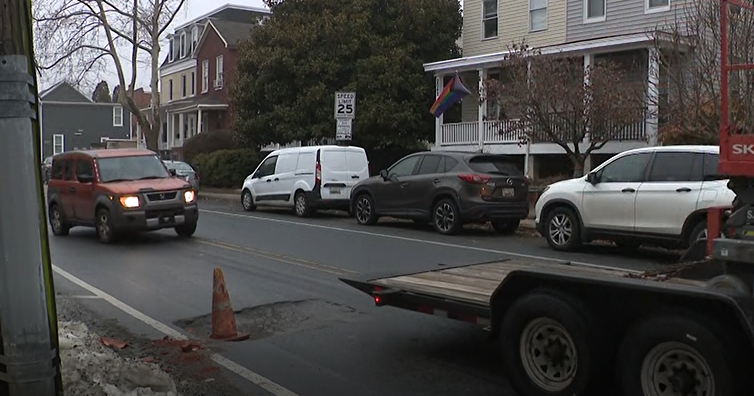Florida jobless claims remain low amid economic concerns
TALLAHASSEE - As unemployment claims in Florida remain relatively low amid inflation and debate about a potential recession, Gov. Ron DeSantis is promoting the need for infrastructure projects as one brace against an economic slowdown.
The U.S. Department of Labor on Thursday estimated 5,841 first-time jobless claims were filed in Florida during the week that ended July 30. That was down from a revised count of 6,901 during the week ending July 23. Nationally, claims rose last week by 6,000 to a total of 260,000.
The report showing a second consecutive weekly claims decline in Florida came after DeSantis told aviation officials Monday that he wants to take steps next legislative session to speed the transportation of goods and people as a way to keep the state's economy moving forward.
"When the state is growing, you just have to do whatever you can to keep up with that," DeSantis said during a Florida Airports Council conference in Orlando. "I think our goal is always to stay ahead of it. But man, when the demand pops, the demand pops."
DeSantis, who is running for re-election in November, pointed to improving traffic and the possibility of further expansion of airports and seaports, while saying he plans to announce a number of initiatives for the 2023 session.
"I just want less traffic. So, it's like I'll put the money in, we just need less traffic," DeSantis said. "The problem is, I mean, you go from here (Orlando) to Tampa, you could end up in standstill traffic at any point on I-4. And so, we want to figure out ways, what can we do, to put some resources into that or some other things that are going to really make a difference for people."
The state budget for the current fiscal year includes $12.6 billion for transportation projects, of which $4.4 billion is slated for highway construction, $314.5 million for aviation improvements and $135.9 million to bulk up seaports.
The Labor Department report Thursday showed Florida continues to have unemployment-claims figures that are similar to the pace before the COVID-19 pandemic slammed into the economy in early 2020.
Florida, which had a 2.8 percent jobless rate in June, has averaged 6,967 initial unemployment claims a week the past four weeks. Since the start of the year, it has averaged 5,885 claims a week.
Meanwhile, the Labor Department last week released data that showed the U.S. economy contracted at an annualized rate of 0.9 percent in the second quarter of 2022.
The economic contraction marked the second consecutive quarter of declines, and DeSantis contends that fits the practical definition of a recession.
"I think the data is telling us that because you've had the inflation, because you've had a lot of problems with energy prices and commodity prices going up, you've had the Fed come in, they've been raising interest rates, of course, that's going to slow down the economy," DeSantis said Monday. "So, we're looking at a situation where we could be in a situation of a downturn, with inflation still being persistently high. And we haven't had that since the 1970s."
DeSantis added that his goal is to "get through this period," which could mean drawing from state reserves that he has long promoted as a hedge against natural disasters or an economic downturn.
"I think the surplus is so big, that if we do see a slowdown in the state of Florida, and revenues don't match expectations --- and I'm not saying that's going to happen but if that did happen --- the infrastructure, education, things we've done for conservation, law enforcement, all these really, really important things, we're not going to miss a beat," DeSantis said. "Worst case. I'll just pick some of the money from the stash. And I'll put it over. And we'll keep on going just like we were prior to that."
By the DeSantis administration's calculations, the state had a $21.8 billion surplus during the 2021-2022 fiscal year, which ended June 30.
The state's economic outlook has been bolstered the past couple of years by federal stimulus money and month-after-month higher-than-anticipated state tax revenues.
Debate has swirled about whether the country has entered a recession. Countering DeSantis' view, the Dallas Federal Reserve posted research Tuesday that said "most indicators --- particularly those measuring labor markets --- provide strong evidence that the U.S. economy did not fall into a recession."
The researchers argued the National Bureau of Economic Research Business-Cycle Dating Committee defines a recession as involving "a significant decline in economic activity" that is widespread and "lasts more than a few months." They also noted that the national unemployment went from 3.9 percent in December to 3.6 percent in March and has held at that level.
"By month six, every other recession incurred an unemployment rate increase of at least 0.3 percentage points," Federal Reserve researchers wrote.
The Florida Department of Economic Opportunity will release a July unemployment report on Aug. 19.







